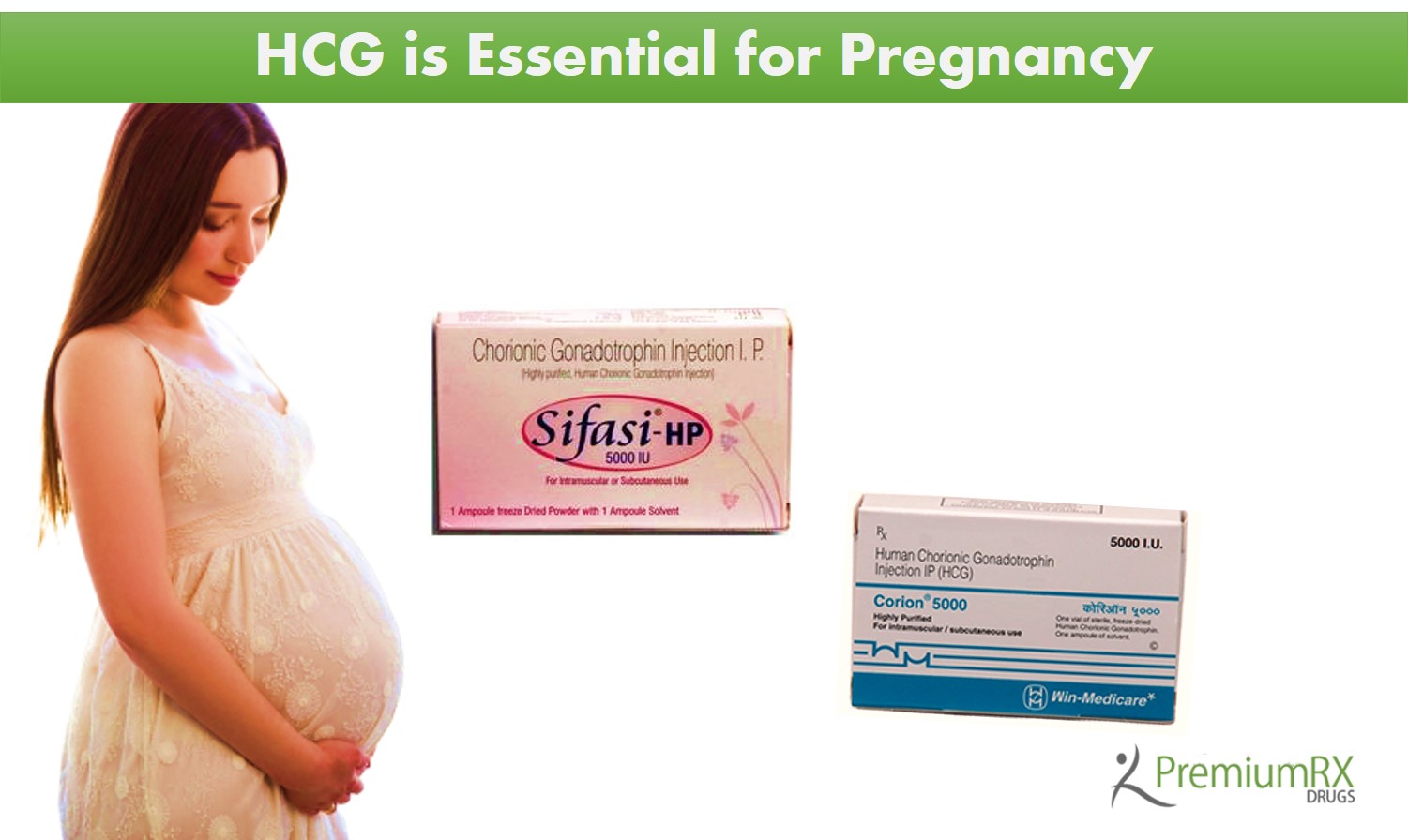HCG or Human Chorionic Gonadotropin is a pregnancy hormone. This hormone plays a very important role in pregnancy; hence, it is the presence of HCG that plays a very important role in pregnancy tests.
HCG, the pregnancy hormone:
HCG hormone is produced by the cells on the outer surface of the embryo; the same cells go to form the placenta. HCG hormone is present in the urine from where it can be detected from 7-9 days after the fertilization has taken place. It is the time when the embryo goes on to attach to the walls of the uterus, this process is called implantation.
The presence of HCG in urine determines pregnancy, and it is the base of all the over the counter and hospital pregnancy tests. Pregnancy tests can determine the presence of HCG in blood or urine when a sufficient amount of HCG is present, as HCG keeps on circulating the blood and is eliminated in urine also.
Importance of HCG in Pregnancy:
Every month an egg is produced by one of the two ovaries present in the lower abdomen of the female human body. This egg if meets a sperm, fertilization may occur. The process of fertilization usually occurs in the fallopian tube to form a bigger mass of cell called embryo in about 7-9 days. This embryo then moves towards the womb or uterus for implantation. Meanwhile, the outer cells of the embryo start forming placenta and placenta begin releasing HCG hormone also. HCG thus can be found in the blood before the first missed period and can be found in the urine for up to a few weeks when the levels are very high.
HCG is essential for pregnancy, it maintains the pregnancy and promotes the development of the foetus. The levels of HCG keeps on rising until 14-16 weeks after the last menstrual periods (LMP).
Guide to HCG level during pregnancy
The levels of HCG keeps on varying after the implantation; the following HCG chart may prove helpful to you:
| S.no. | Weeks after LMP | HCG levels( miu/ml) |
| 1. | 3 | 5-50 |
| 2. | 4 | 5-425 |
| 3. | 5 | 18 – 7,340 |
| 4. | 6 | 1,080 – 56,500 |
| 5. | 7-8 | 7, 650 – 229,000 |
| 6. | 9-12 | 25,700 – 288,000 |
| 7. | 13-16 | 13,300 – 254,000 |
| 8. | 17-24 | 4,060 – 165,400 |
| 9. | 25-40 | 3,640 – 117,000 |
| In Non–pregnant women’s the HCG level is <5.0 min/mlIn Post-menopause women the HCG levels is <9.5 min/ml | ||
The chart is helpful to identify the levels of Human Chorionic Gonadotropin in the body according to the weeks after the implantation takes place in the uterus. The HCG level anything above 25 miu/ml is considered the positive test for pregnancy and a level less than five miu/ml is the negative test for pregnancy.
Keep the following things in mind to read your HCG pregnancy test:
• HCG less than 5miu/ml: Negative, not pregnant.
• HCG between 5 to 25 miu/ml: Doubtful; possible pregnancy but not definitive. You may be advised to repeat the test in a couple of days
• Human Chorionic Gonadotropin over 25 miu/ml: Congratulations! You are pregnant.
However, too much of HCG and too low levels of HCG should not be ignored. The low of HCG in the blood test may mean anything complicated and the test should be repeated after 42-72 hours because low levels of pregnancy may mean:
• Miscalculation of the pregnancy date
• Blighted ovum leading to miscarriage
• Ectopic pregnancy or implantation of the embryo outside the uterus
Too much of HCG levels should also be rechecked with 48-72 hours. The high levels of HCG can mean:
• Miscalculation of pregnancy date
• Multiple pregnancies
• Molar pregnancy that is an abnormality of placenta leading to either no live embryo or a partial lifeless mass of cells and an embryo with severe birth defects
• Down’s syndrome, a case in which HCG levels just doubles the normal HCG levels during pregnancy
So, it is very important to have a complete scan of the womb to find out the real scenario and to rule out the complications. Although the normal medications that we take do not interfere with the HCG levels; however, can be altered by certain medication used in fertility treatments those containing HCG Injections. Hence, consult your health care provider on how the medication can affect a test.
Amelia Smith
Latest posts by Amelia Smith (see all)
- Careprost for Fuller Eyelashes - July 11, 2024
- Tips to Get Longer Eyelashes - July 10, 2024
- Tips to Boost Eyelash Growth - April 8, 2024




